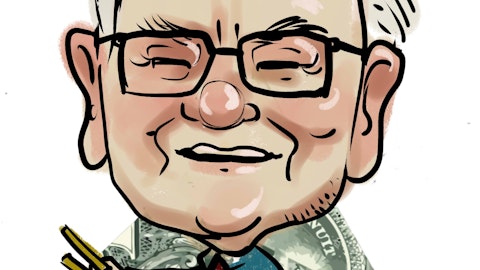
Spirit Airlines Incorporated (NASDAQ:SAVE) was a popular stock among other hedge funds in the first quarter as well. PAR Capital Management, managed by Paul Reeder, reported owning 5.4 million shares after dramatically increasing its position in the fourth quarter of 2011 (find other stock picks from PAR Capital Management). Initiating a 3 million share position was Kevin Ulrich’s Anchorage Advisors (see the rest of Anchorage’s portfolio).
Spirit Airlines Incorporated (NASDAQ:SAVE) has drawn attention for its business strategy, which in some ways is modeled after the successful growth of Southwest Airlines (NYSE:LUV). Spirit is focused on regional travel within the northeastern U.S. and to popular tourist destinations from that area such as the Caribbean and Florida. In this way, it has been able to succeed in an industry that is generally despised by investors (and for good reason, following the string of bankruptcies that hit airlines in the 2000s and the industry’s sensitivity to economic activity at one end and fuel prices at the other). Its 10-Q for the second quarter reported a 25% increase in revenue and a doubling of net income compared to the second quarter of 2011 (though the company has also nearly doubled its share count in the last year, meaning that earnings per share have only increased slightly).
Wall Street analysts expect that Spirit Airlines Incorporated will continue to grow its business, and assign it earnings estimates which imply a forward P/E multiple of 8 and a five-year PEG ratio of 0.5. Even at 14 times trailing earnings, Spirit might make a good value buy if it weren’t for its industry; instead, bullish investors will have to be relying on continued growth. Spirit’s closest peers are JetBlue Airways Corporation (NASDAQ:JBLU), a similarly sized airline, and the already mentioned Southwest, which has continued its tradition of low-priced, low-frills air travel. We discussed if Southwest Airlines is a buy last month. These stocks trade at 12 and 21 times trailing earnings, respectively, but sell-side analysts also expect high growth in their businesses bringing both their forward earnings multiples down to 8. This figure is in line with Spirit’s, so the only question facing investors is whether Southwest or Spirit will actually deliver the higher growth that is needed to pull them even with JetBlue. Other major airlines include US Airways Group (NYSE:LCC) and United Continental Holdings (NYSE:UAL). US Airways trades at a remarkably low four times trailing earnings, and analysts expect its business to improve in the future as well; United Continental trades at a trailing P/E of 16 but analyst bullishness on the industry wins out again and its forward multiple is only 3. We’d avoid airline stocks- and, while perhaps Oaktree is taking profits, it surely wouldn’t be selling out completely if it shared the sell-side view of Spirit Airlines Incorporated (NASDAQ:SAVE) and the rest of the industry. Of these listed here, US Airways on its face is the best value play but even in that case we have enough worries about macro factors to keep us out of the stock.





